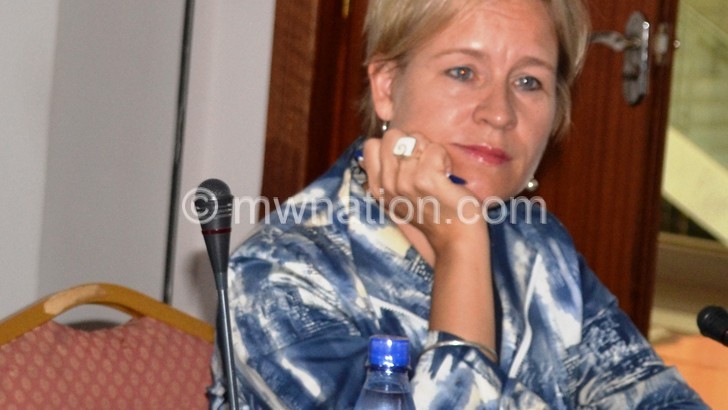UN takes SDGs to MPs
The United Nations (UN) has asked members of Parliament (MPs) to take Sustainable Development Goals (SDGs) to the people because they are a reflection of the needs and aspirations of Malawians.
UN resident coordinator Mia Seppo said this in Lilongwe yesterday at the opening of a half day workshop on the Role of Parliament on SDGs for members of the Parliamentary Committee on Government Assurances and Public Reforms.
In 2015, the UN General Assembly adopted the SDGs, taking a rights-based approach to development and addressing development challenges across the world.

But Seppo said for Malawi to make progress on SDGs, Parliament should be fully engaged and take active interest in their implementation.
She said implementation of SDGs in Malawi would be even more possible with progress on public sector reforms and public finance management reforms as well as rethink of other government policies.
Said Seppo: “The SDGs are the people’s agenda. Therefore, as the people’s representatives, as also their voice in decision-making bodies, your voice is critical: be it through drafting laws or overseeing the government’s execution of these laws, ratifying national policies and strategic plans as well as lobbying for better national planning.”
She gave examples of countries whose parliaments have established task forces and committees to exercise accountability on SDGs.
Deputy Clerk of Parliament Henry Njolomole lauded the UN for training the committee on SDGs.
He said the workshop would enhance the MPs’ oversight and legislative responsibilities.
On his part, committee chairperson Harry Mkandawire said the oversight function of the committee would allow them to share ideas and road map.
He said: “The SDGs will enable us to reach out to people in the villages so they know government’s programmes. We will also be able to scrutinise the budget so that it is in line with the SDGs.”
There are 17 SDGs, including ending poverty, zero hunger, good health and wellbeing, quality education and life on land.
The SDGs replaced the Millennium Development Goals (MDGs) set in 2000 and expired in 2015. MDGs sought to halve world poverty by 2015. n





